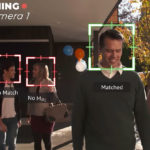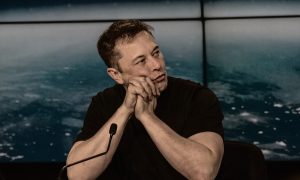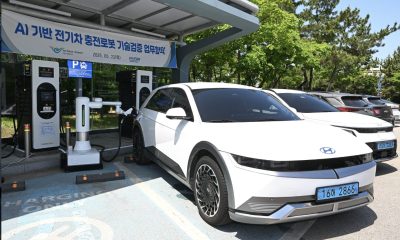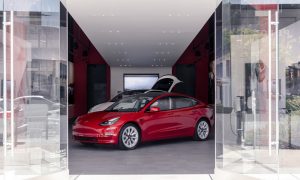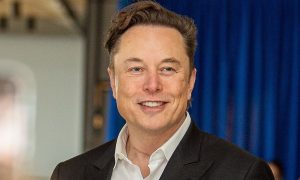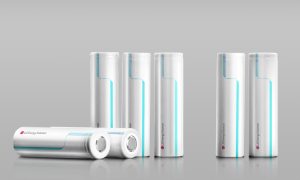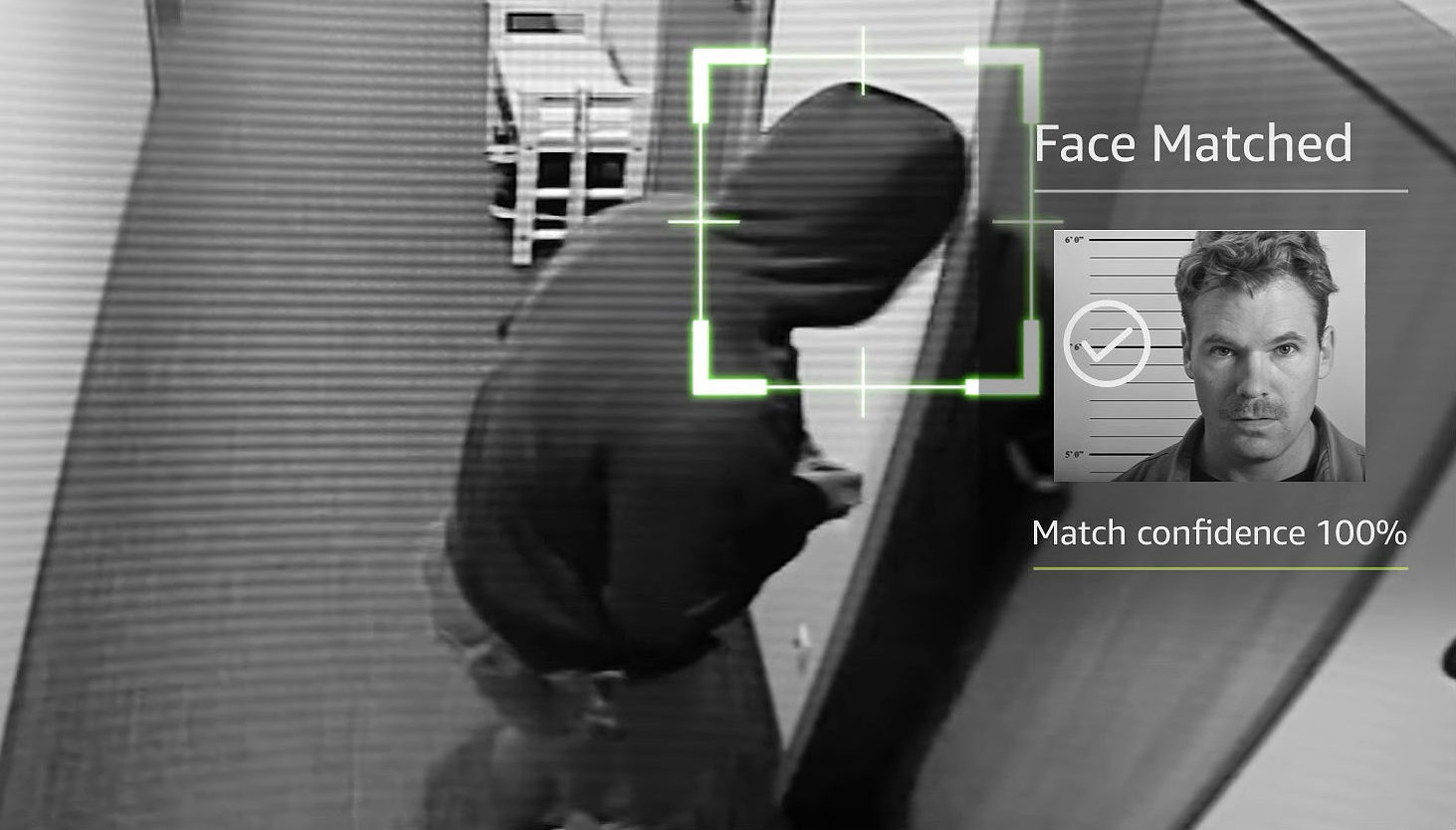

News
Amazon employees demand stoppage of facial recognition contract with law enforcement
Amazon workers have penned a letter to Jeff Bezos calling on the CEO to immediately cancel the access of law enforcement agencies to its Rekognition facial recognition system. The employees’ letter comes on the heels of several Amazon shareholders who have also asked the e-commerce giant to stop selling Rekognition to the police.
As could be seen in the letter to the CEO, Amazon’s employees stated that they do not agree to have their work used for purposes that could target marginalized groups. The letter also cited the United States government’s practice of separating children away from their parents at the border as a key reason why Amazon should cancel its contract with law enforcement agencies. Amazon workers further called for the removal of Palantir, a data-mining company, from the client list of Amazon Web Services (AWS). Palantir, a company founded by Peter Thiel, currently has a contract with ICE and is actively involved in the agency’s deportation and detention programs.
Rekognition is, at its core, an API for deep learning-based analysis to detect, track, and analyze people and objects in videos. In Amazon’s advertisement for the service on YouTube, the company could be seen promoting Rekognition’s facial tracking capabilities such as smart home monitoring, celebrity detection in videos, and more serious applications such as the recognition and tracking of persons of interest. An investigation conducted by the American Civil Liberties Union earlier this year determined that Amazon actively marketed Rekognition to law enforcement officials, citing the software’s advanced face tracking capabilities.
- A demonstration of the capabilities of Amazon Rekognition. [Credit: Amazon Cloud Services/YouTube]
- A demonstration of the capabilities of Amazon Rekognition. [Credit: Amazon Cloud Services/YouTube]
The Amazon employees’ initiative against the company’s ties to law enforcement comes on the heels of similar protests in Microsoft and Google. Earlier this year, Google was beset by a brief exodus of workers and employee protests after it was revealed that the company had aided the Pentagon in its AI-driven Project Maven initiative, which uses artificial intelligence to effectively analyze footage from military drones. While Google stated that the work it has done with the Pentagon was mundane, the company ultimately opted not to renew its Project Maven contract, while also announcing new ethics principles to govern its artificial intelligence work.
Microsoft also found itself in hot water last May after it was revealed that the company has a $19.4 million contract with the United States’ Immigration and Customs Enforcement (ICE). In a letter addressed to CEO Satya Nadella, Microsoft employees stated that they “refuse to be complicit” in ICE’s practice of marginalizing select ethnic groups and actively separating families. In a response to its employees’ protests, Microsoft noted that the company only provides non-surveillance services such as mail, calendar, messaging and document management to the government agency.
The Amazon workers’ full letter to Jeff Bezos could be read in full below.
Dear Jeff,
We are troubled by the recent report from the ACLU exposing our company’s practice of selling AWS Rekognition, a powerful facial recognition technology, to police departments and government agencies. We don’t have to wait to find out how these technologies will be used. We already know that in the midst of historic militarization of police, renewed targeting of Black activists, and the growth of a federal deportation force currently engaged in human rights abuses — this will be another powerful tool for the surveillance state, and ultimately serve to harm the most marginalized. We are not alone in this view: over 40 civil rights organizations signed an open letter in opposition to the governmental use of facial recognition, while over 150,000 individuals signed another petition delivered by the ACLU.
We also know that Palantir runs on AWS. And we know that ICE relies on Palantir to power its detention and deportation programs. Along with much of the world we watched in horror recently as U.S. authorities tore children away from their parents. Since April 19, 2018 the Department of Homeland Security has sent nearly 2,000 children to mass detention centers. This treatment goes against U.N. Refugee Agency guidelines that say children have the right to remain united with their parents, and that asylum-seekers have a legal right to claim asylum. In the face of this immoral U.S. policy, and the U.S.’s increasingly inhumane treatment of refugees and immigrants beyond this specific policy, we are deeply concerned that Amazon is implicated, providing infrastructure and services that enable ICE and DHS.
Technology like ours is playing an increasingly critical role across many sectors of society. What is clear to us is that our development and sales practices have yet to acknowledge the obligation that comes with this. Focusing solely on shareholder value is a race to the bottom, and one that we will not participate in.
We refuse to build the platform that powers ICE, and we refuse to contribute to tools that violate human rights.
As ethically concerned Amazonians, we demand a choice in what we build, and a say in how it is used. We learn from history, and we understand how IBM’s systems were employed in the 1940s to help Hitler. IBM did not take responsibility then, and by the time their role was understood, it was too late. We will not let that happen again. The time to act is now.
We call on you to:
- Stop selling facial recognition services to law enforcement
- Stop providing infrastructure to Palantir and any other Amazon partners who enable ICE.
- Implement strong transparency and accountability measures, that include enumerating which law enforcement agencies and companies supporting law enforcement agencies are using Amazon services, and how.
Our company should not be in the surveillance business; we should not be in the policing business; we should not be in the business of supporting those who monitor and oppress marginalized populations.
Sincerely,
Amazonians
Here’s Amazon’s advertisement for Rekognition.
https://www.youtube.com/watch?v=SNONL4IecHE
News
Tesla begins Robotaxi certification push in Arizona: report
Tesla seems serious about expanding its Robotaxi service to several states in the coming months.

Tesla has initiated discussions with Arizona transportation regulators to certify its driverless Robotaxi service in the state, as per a recent report from Bloomberg News. The move follows Tesla’s launch of its Robotaxi pilot program in Austin, Texas, as well as CEO Elon Musk’s recent comments about the service’s expansion in the Bay Area.
The Arizona Department of Transportation confirmed to Bloomberg that Tesla has reached out to begin the certification process for autonomous ride-sharing operations in the state. While details remain limited, the outreach suggests that Tesla is serious about expanding its driverless Robotaxi service to several territories in the coming months.
The Arizona development comes as Tesla prepares to expand its service area in Austin this weekend, as per CEO Elon Musk in a post on X. Musk also stated that Tesla is targeting the San Francisco Bay Area as its next major market, with a potential launch “in a month or two,” pending regulatory approvals.
Tesla first launched its autonomous ride-hailing program on June 22 in Austin with a small fleet of Model Y vehicles, accompanied by a Tesla employee in the passenger seat to monitor safety. While still classified as a test, Musk has said the program will expand to about 1,000 vehicles in the coming months. Tesla will later upgrade its Robotaxi fleet with the Cyercab, a two-seater that is designed without a steering wheel.
Sightings of Cybercab castings around the Giga Texas complex suggests that Tesla may be ramping the initial trial production of the self-driving two-seater. Tesla, for its part, has noted in the past that volume production of the Cybercab is expected to start sometime next year.
In California, Tesla has already applied for a transportation charter-party carrier permit from the state’s Public Utilities Commission. The company is reportedly taking a phased approach to operating in California, with the Robotaxi service starting with pre-arranged rides for employees in vehicles with safety drivers.
News
Tesla sets November 6 date for 2025 Annual Shareholder Meeting
The automaker announced the date on Thursday in a Form 8-K.

Tesla has scheduled its 2025 annual shareholder meeting for November 6, addressing investor concerns that the company was nearing a legal deadline to hold the event.
The automaker announced the date on Thursday in a Form 8-K submitted to the United States Securities and Exchange Commission (SEC). The company also listed a new proposal submission deadline of July 31 for items to be included in the proxy statement.
Tesla’s announcement followed calls from a group of 27 shareholders, including the leaders of large public pension funds, which urged Tesla’s board to formally set the meeting date, as noted in a report from The Wall Street Journal.
The group noted that under Texas law, where Tesla is now incorporated, companies must hold annual meetings within 13 months of the last one if requested by shareholders. Tesla’s previous annual shareholder meeting was held on June 13, 2024, which placed the July 13 deadline in focus.
Tesla originally stated in its 2024 annual report that it would file its proxy statement by the end of April. However, an amended filing on April 30 indicated that the Board of Directors had not yet finalized a meeting date, at least at the time.
The April filing also confirmed that Tesla’s board had formed a special committee to evaluate certain matters related to CEO Elon Musk’s compensation plan. Musk’s CEO performance award remains at the center of a lengthy legal dispute in Delaware, Tesla’s former state of incorporation.
Due to the aftermath of Musk’s legal dispute about his compensation plan in Delaware, he has not been paid for his work at Tesla for several years. Musk, for his part, has noted that he is more concerned about his voting stake in Tesla than his actual salary.
At last year’s annual meeting, TSLA shareholders voted to reapprove Elon Musk’s compensation plan and ratified Tesla’s decision to relocate its legal domicile from Delaware to Texas.
Elon Musk
Grok coming to Tesla vehicles next week “at the latest:” Elon Musk
Grok’s rollout to Tesla vehicles is expected to begin next week at the latest.

Elon Musk announced on Thursday that Grok, the large language model developed by his startup xAI, will soon be available in Tesla vehicles. Grok’s rollout to Tesla vehicles is expected to begin next week at the latest, further deepening the ties between the two Elon Musk-led companies.
Tesla–xAI synergy
Musk confirmed the news on X shortly after livestreaming the release of Grok 4, xAI’s latest large language model. “Grok is coming to Tesla vehicles very soon. Next week at the latest,” Musk wrote in a post on social media platform X.
During the livestream, Musk and several members of the xAI team highlighted several upgrades to Grok 4’s voice capabilities and performance metrics, positioning the LLM as competitive with top-tier models from OpenAI and Google.
The in-vehicle integration of Grok marks a new chapter in Tesla’s AI development. While Tesla has long relied on in-house systems for autonomous driving and energy optimization, Grok’s integration would introduce conversational AI directly into its vehicles’ user experience. This integration could potentially improve customer interaction inside Tesla vehicles.
xAI and Tesla’s collaborative footprint
Grok’s upcoming rollout to Tesla vehicles adds to a growing business relationship between Tesla and xAI. Earlier this year, Tesla disclosed that it generated $198.3 million in revenue from commercial, consulting, and support agreements with xAI, as noted in a report from Bloomberg News. A large portion of that amount, however, came from the sale of Megapack energy storage systems to the artificial intelligence startup.
In July 2023, Musk polled X users about whether Tesla should invest $5 billion in xAI. While no formal investment has been made so far, 68% of poll participants voted yes, and Musk has since stated that the idea would be discussed with Tesla’s board.
-

 Elon Musk1 week ago
Elon Musk1 week agoTesla investors will be shocked by Jim Cramer’s latest assessment
-

 Elon Musk3 days ago
Elon Musk3 days agoElon Musk confirms Grok 4 launch on July 9 with livestream event
-

 Elon Musk16 hours ago
Elon Musk16 hours agoxAI launches Grok 4 with new $300/month SuperGrok Heavy subscription
-

 News7 days ago
News7 days agoTesla Model 3 ranks as the safest new car in Europe for 2025, per Euro NCAP tests
-

 Elon Musk2 weeks ago
Elon Musk2 weeks agoA Tesla just delivered itself to a customer autonomously, Elon Musk confirms
-

 Elon Musk1 week ago
Elon Musk1 week agoxAI’s Memphis data center receives air permit despite community criticism
-

 Elon Musk2 weeks ago
Elon Musk2 weeks agoTesla’s Omead Afshar, known as Elon Musk’s right-hand man, leaves company: reports
-

 News2 weeks ago
News2 weeks agoXiaomi CEO congratulates Tesla on first FSD delivery: “We have to continue learning!”

